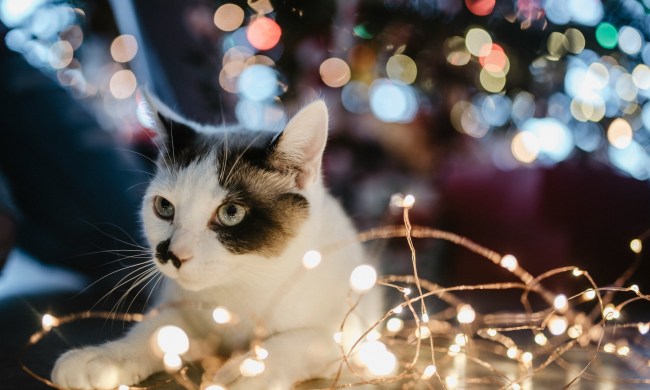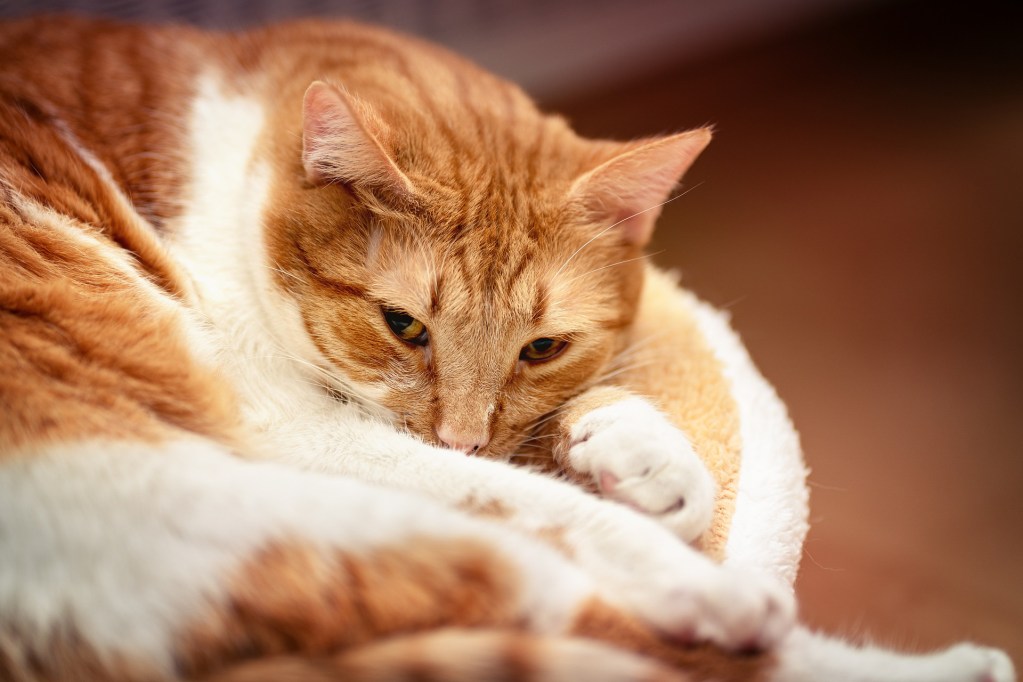
When the winter weather hits and the days become shorter, gray, and overcast, it can be all too tempting to climb into your PJs early and call it a night. Chances are — your cat is right there with you! If you think you’re noticing your feline friend sleeping more frequently or for longer periods of time during the winter, you might not be imagining things.
Cats’ sleeping habits can change for many reasons! Anything from a change in diet to a new family routine can change the way a kitty sleeps or how long they spend napping. It’s important to keep track of your cat’s sleep, though, because big changes can sometimes indicate health issues in pets. So, do cats sleep more in winter? And why do they spend so much time snoozing?
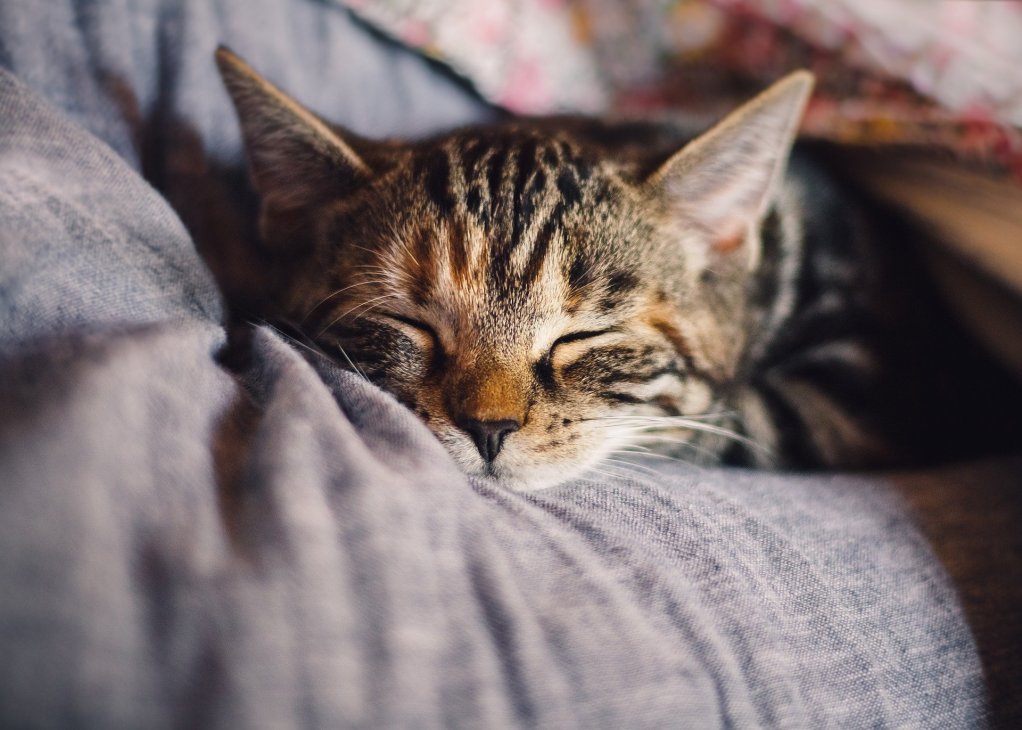
Do cats sleep more in winter? If it seems like it, you’re not just imagining things
You’re not crazy if you feel like cats sleep more in the winter — it’s totally true! The ASPCA reports that cats typically sleep between 12 and 20 hours per day, but in the winter, they may sleep even more. Many people and other pets — like dogs and hibernating species — can relate!
That increase in sleep may be because of a natural, seasonal change in animals’ circadian rhythms — the daylight hours are shorter, after all — but your cat might also be picking up on your own changes in routine. If you’re headed to bed a little earlier than usual, they might too.
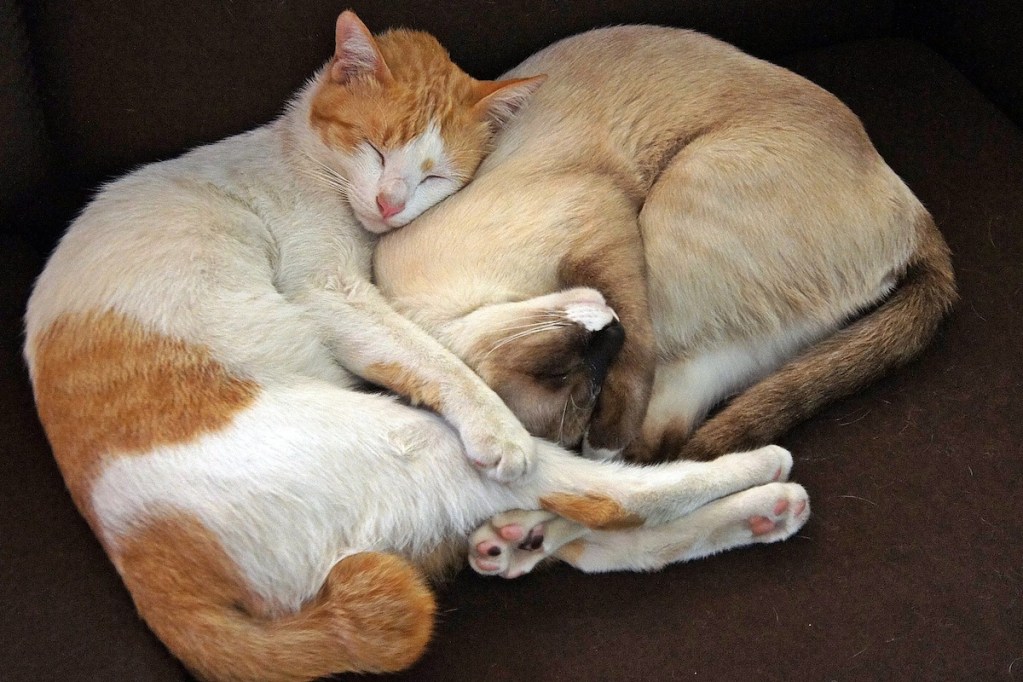
Why do cats sleep more in winter? Should you be worried?
Besides following their owners’ routines, cats may sleep more in the winter for a few different reasons. Veterinarian Dr. Justin Shmalberg explained to Yahoo that multiple factors can affect cats’ wintertime sleeping habits. Your buddy’s endocrine and nervous systems strongly influence how much they sleep, as well as their hunting and mating habits. It’s all controlled by two bodily ‘rhythms’ called the circadian and circannual rhythms. These may sound familiar for those who have researched human sleep cycles!
The circadian rhythm refers to the changes your cat undergoes every 24 hours that tells them to sleep and when to wake. It’s strongly influenced by light and dark, which is why the reduced daylight hours may affect your cat’s desire to head to bed.
Your cat’s circannual rhythm includes processes that might fluctuate at certain times per year. These are natural biological and psychological processes, and they can also contribute to your cat’s sleeping habits. This is the same system that drives some creatures to hibernate in winter!
While your cat may take cues from the changing light that comes with winter, cats who live entirely indoors likely don’t notice the changes in light as much as cats who spend time outdoors do. Indoor cats tend to be more sedentary than outdoor cats as well, so you might not see a change in your indoor cat’s seasonal behavior at all.
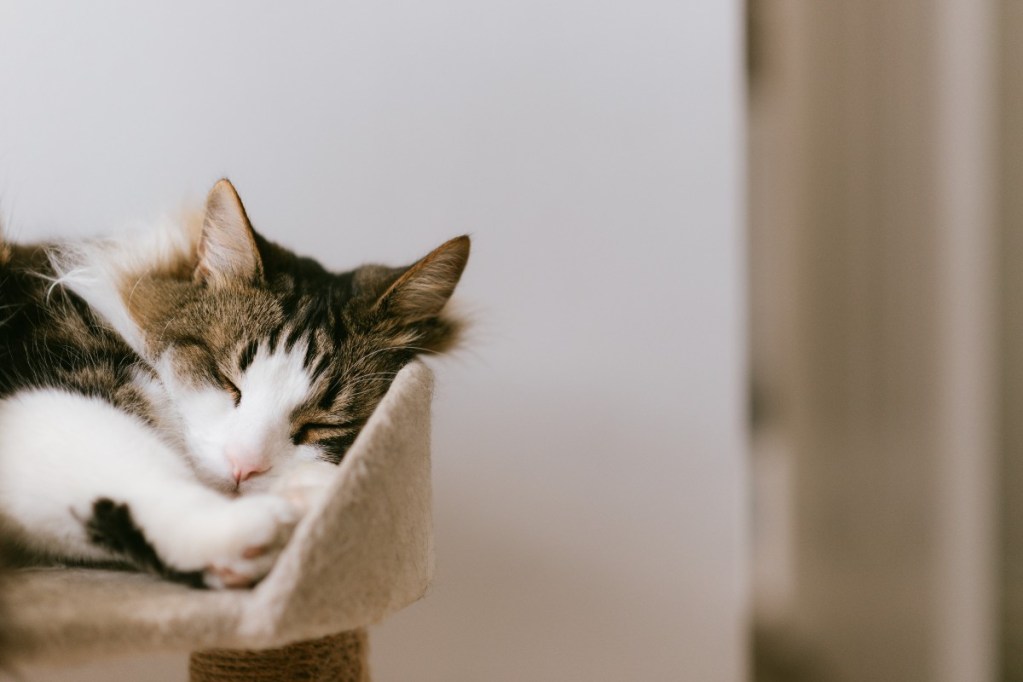
Do cats get depressed in winter? What to know about Seasonal Affective Disorder in pets
Seasonal Affective Disorder — more commonly known as seasonal depression — affects countless people worldwide. But did you know your cat could experience this, too? According to veterinarian Dr. Albert Ahn, who spoke with Chewy, approximately one-third of pet owners have reported a change in their pet’s behavior in the colder months.
The precise cause of seasonal depression isn’t fully known, but changes in sunlight and sleep patterns may be to blame. If your cat is suffering from seasonal depression, you might notice symptoms like low energy or heavy sleeping habits. You might also notice changes in how your cat eats, and they might start vocalizing more than normal. Keep an eye out for any unusual behaviors, and don’t hesitate to inform your vet’s office if you become worried.

Keeping your cat healthy in the winter — it’s more than keeping them warm
While some changes in your cat’s sleeping habits are normal in the winter, major changes can also be a sign that your cat is sick or needs veterinary attention. You’ll want to be on the lookout for unusual behavior changes in your cat, including appetite and socialization changes. If you notice any of these issues, it’s important to get your cat to the vet — in case there’s a physical or emotional issue that needs treatment.
You may also need to monitor your cat’s weight to help keep them healthy. If your cat starts sleeping more and moving less, you might need to adjust how much you’re feeding them to help prevent weight gain. They may not love the change, but it’s necessary to protect your furry friend from weight-related health concerns.
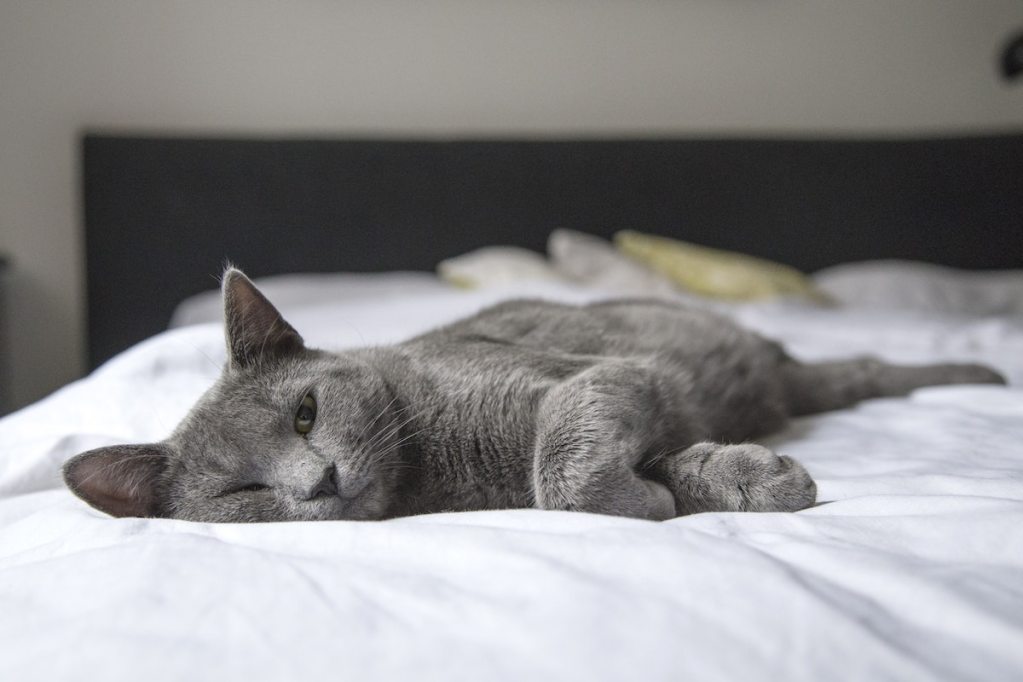
What is the treatment for Seasonal Affective Disorder in cats?
It would break any pet parent’s heart to think of their furry friend feeling sad and lethargic in the winter, but it’s an unfortunate reality for many animals. Fortunately, Dr. Ahn and Chewy list several paths cat owners can take to ease the effects of SAD.
The first line of defense that anyone can try includes simple lifestyle changes. The easiest thing you can do is to keep your home well-lit in the winter — during waking hours, that is! Purposefully engaging your kitty in activities they enjoy can also be a great way to wake them up and keep them looking forward to every day and every interaction.
Another great thing to do to battle SAD is to get outdoors, but this can be a challenge for indoor cats. If you and your vet agree that this is a safe move to try, though, putting your cat in a carrier, on a leash, or even next to a large window can be a great way to help them get sunshine.
If lifestyle adjustments don’t seem to help, there are some supplements your cat can try. Please double-check with your cat’s vet before changing their diet, though, as there’s always potential for negative side effects, too. But rest assured, there are plenty of options!
Every cat is different, and you may or may not notice that your cat starts sleeping more in the winter. If it turns out that your cat does like to catch some extra z’s when the cooler temperatures hit (which is totally fine), you can help them nap more comfortably by setting up some cozy spots. A cat bed or warm blanket is always nice, but your cat will also appreciate a heated cat bed to keep him extra warm. Keeping the heat turned up in your home and opening your blinds so the sun makes warm spots on the floor will also help your cat sleep more comfortably.
